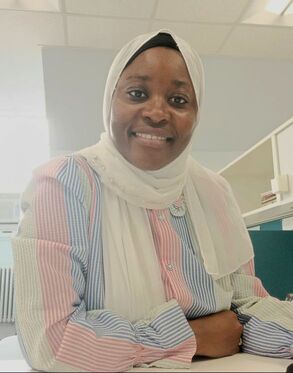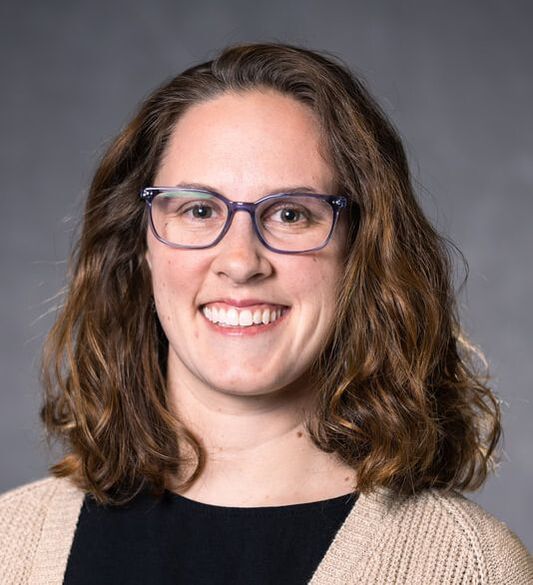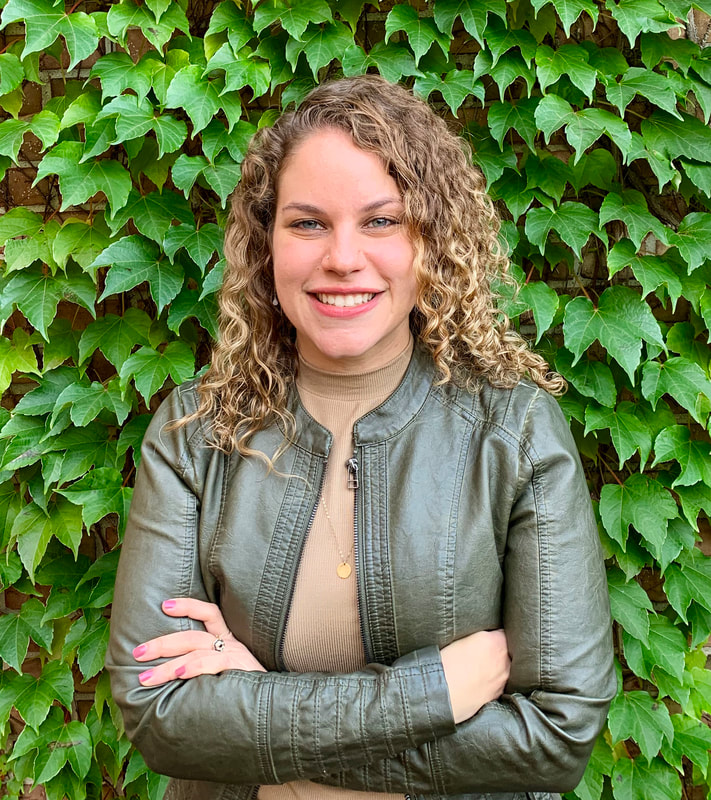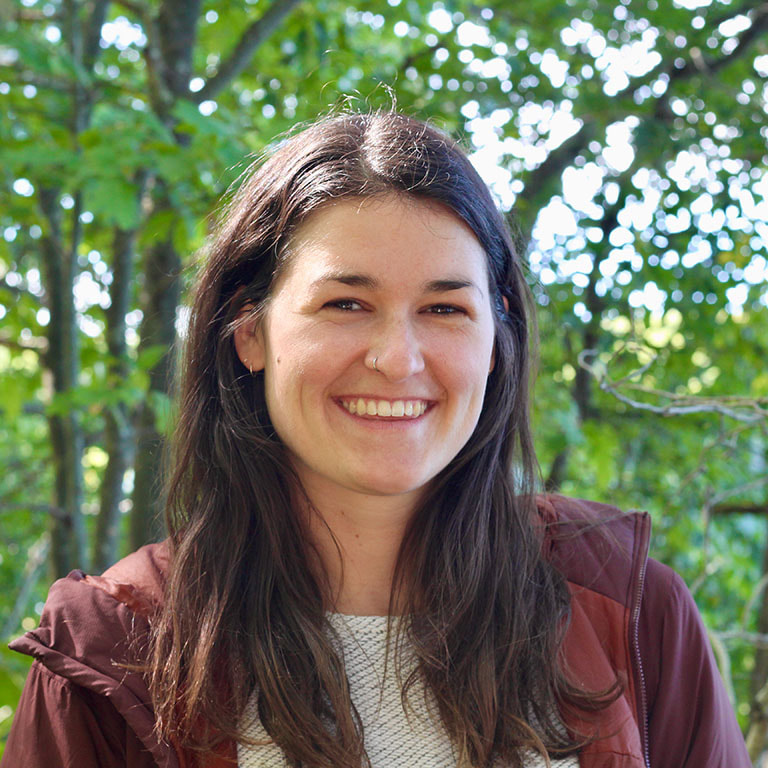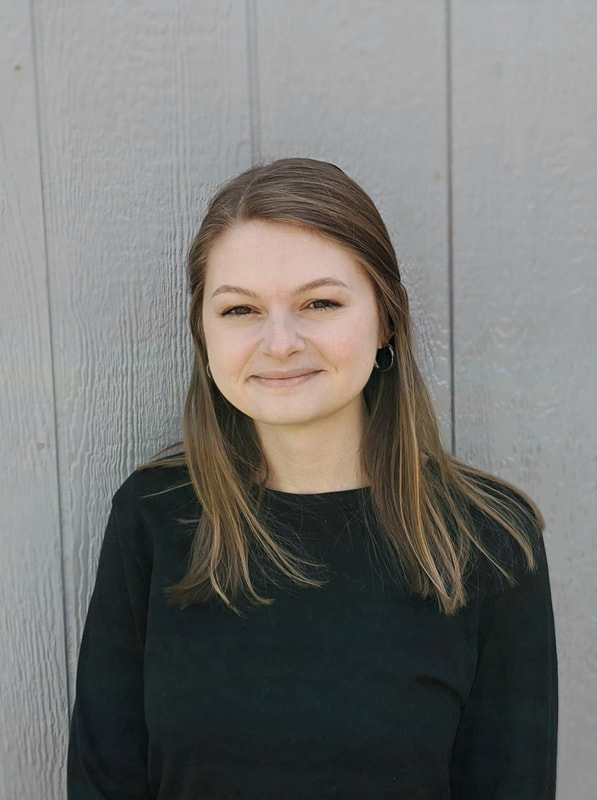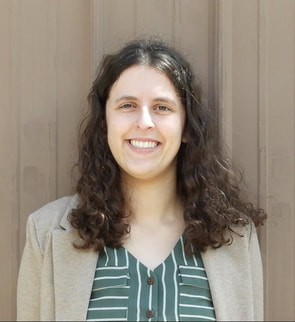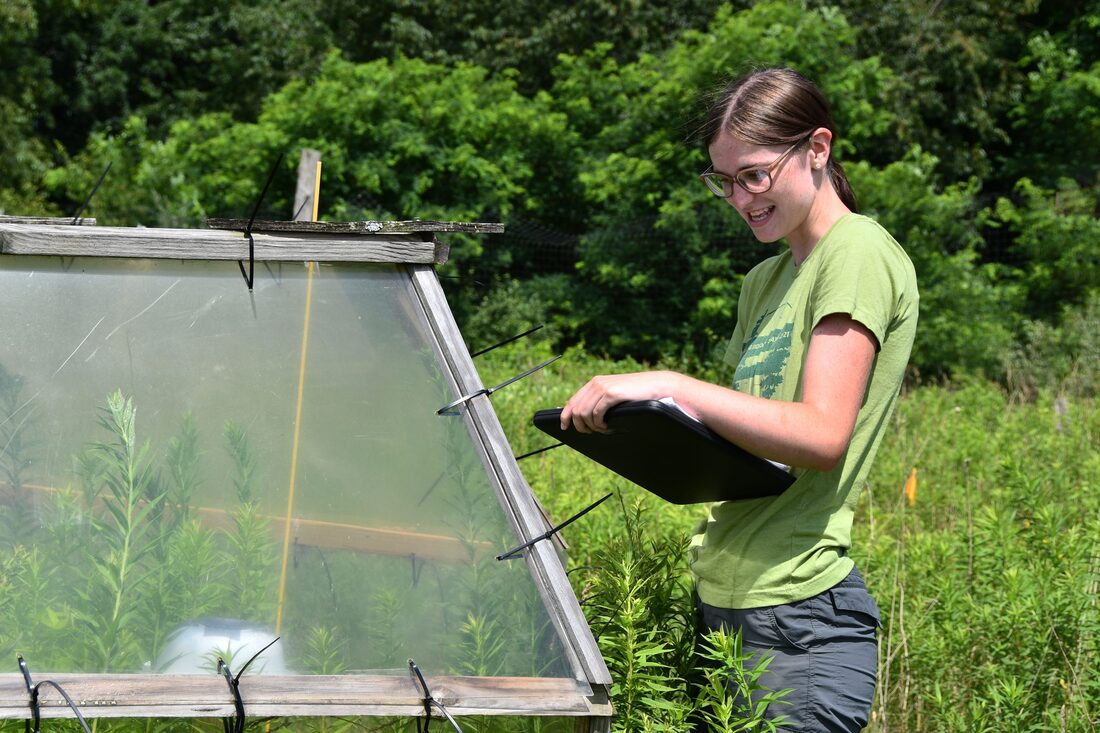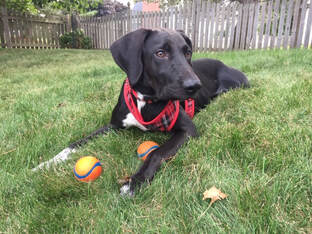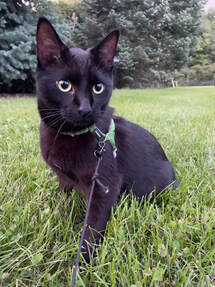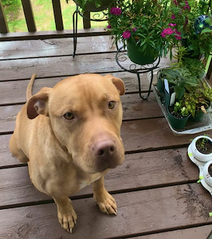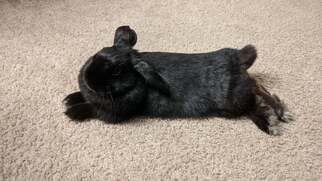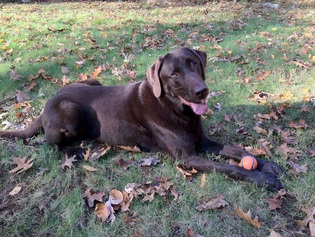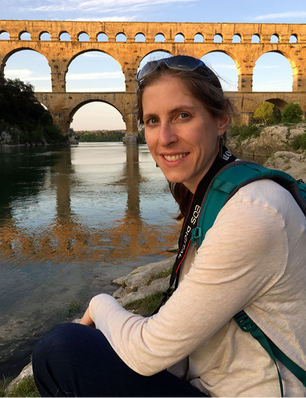
Phoebe Lehmann Zarnetske
Associate Professor, Michigan State University, Integrative Biology and EEB
Director: Institute for Biodiversity, Ecology, Evolution, and Macrosystems (IBEEM)
Fall '21 - Summer '22: sabbatical, University of Lyon, France
plz (at) msu.edu
@PLZarnetske
PhD 2011 Oregon State University
MS 2006 Utah State University
BA 2001 Colby College
C.V.
she.her.hers
Research Interests:
I am a community ecologist in the Department of Integrative Biology at Michigan State University and am Director of the Institute for Biodiversity, Ecology, Evolution, and Macrosystems (IBEEM). I also hold an adjunct appointment in the Department of Plant Biology and am affiliated with the Ecology, Evolution, and Behavior (EEB) Program, Environmental Science and Policy Program (ESPP), and Kellogg Biological Station (KBS) LTER. I initiated the Spatial Ecology Graduate Certificate Program.
My research program uses a combination of observational data, experiments, and modeling to connect observed patterns of biodiversity and community composition with underlying mechanisms. Specifically, I am interested in how the composition and geographic distribution of species and ecological communities are affected by biotic interactions, species invasions, biophysical feedbacks, geodiversity, climate change, land use change, and geoengineering. A central goal of my research program is to understand which species and ecological communities are most sensitive and/or resilient to climate change. In turn, some of these species may act as "biotic multipliers" of climate change through their outsized impacts on other species, ecological communities, and ecosystem functions. My research is often interdisciplinary, with collaborators in remote sensing, climate science, geomorphology, mathematics, statistics, and engineering.
In my free time, I enjoy hiking, cross-country skiing, cooking, gardening, photography, and traveling with my family.
Background: My prior appointments include: Assistant Professor, MSU Forestry, and Fisheries & Wildlife; and a Yale Climate and Energy Institute Postdoctoral Fellow in the Yale School of Forestry and Environmental Studies. As a graduate student I conducted habitat modeling on Utah forests (Utah State University), and invasive species and ecosystem service research on the US Pacific Northwest Coast and New Zealand (Oregon State University). As an undergraduate, my research included wildlife population monitoring in Patagonia, Chile (Colby College/University of Connecticut), and sustainable development of coffee in Costa Rica (School for Field Studies).
Associate Professor, Michigan State University, Integrative Biology and EEB
Director: Institute for Biodiversity, Ecology, Evolution, and Macrosystems (IBEEM)
Fall '21 - Summer '22: sabbatical, University of Lyon, France
plz (at) msu.edu
@PLZarnetske
PhD 2011 Oregon State University
MS 2006 Utah State University
BA 2001 Colby College
C.V.
she.her.hers
Research Interests:
I am a community ecologist in the Department of Integrative Biology at Michigan State University and am Director of the Institute for Biodiversity, Ecology, Evolution, and Macrosystems (IBEEM). I also hold an adjunct appointment in the Department of Plant Biology and am affiliated with the Ecology, Evolution, and Behavior (EEB) Program, Environmental Science and Policy Program (ESPP), and Kellogg Biological Station (KBS) LTER. I initiated the Spatial Ecology Graduate Certificate Program.
My research program uses a combination of observational data, experiments, and modeling to connect observed patterns of biodiversity and community composition with underlying mechanisms. Specifically, I am interested in how the composition and geographic distribution of species and ecological communities are affected by biotic interactions, species invasions, biophysical feedbacks, geodiversity, climate change, land use change, and geoengineering. A central goal of my research program is to understand which species and ecological communities are most sensitive and/or resilient to climate change. In turn, some of these species may act as "biotic multipliers" of climate change through their outsized impacts on other species, ecological communities, and ecosystem functions. My research is often interdisciplinary, with collaborators in remote sensing, climate science, geomorphology, mathematics, statistics, and engineering.
In my free time, I enjoy hiking, cross-country skiing, cooking, gardening, photography, and traveling with my family.
Background: My prior appointments include: Assistant Professor, MSU Forestry, and Fisheries & Wildlife; and a Yale Climate and Energy Institute Postdoctoral Fellow in the Yale School of Forestry and Environmental Studies. As a graduate student I conducted habitat modeling on Utah forests (Utah State University), and invasive species and ecosystem service research on the US Pacific Northwest Coast and New Zealand (Oregon State University). As an undergraduate, my research included wildlife population monitoring in Patagonia, Chile (Colby College/University of Connecticut), and sustainable development of coffee in Costa Rica (School for Field Studies).
Postdocs
|
Funding: MSU African Future Leadership Program, MSU EEB, MSU IBEEM, NSF
|
Lala Kounta
2023- Postdoctoral Associate, MSU Integrative Biology & EEB; IBEEM Postdoctoral Fellow 2022-2023: Postdoctoral Fellow, African Future Leadership Program kountala (at) msu.edu PhD 2019 Cheikh Anta Diop University, Dakar | UCAD · Ecole Supérieure Polytechnique website, LinkedIn Research Interests: My research aims to understanding the influence of global warming on ocean circulation and marine ecosystems especially extreme events like marine heat waves (MHW). MHW have major ecological impacts in marine ecosystems. The effects include biodiversity loss and changes in species behavior or performance, loss of genetic diversity and adaptive capacity, economic impacts from changes in fishery catch rates and mortality of species. It can potentially affect the life stages of species (i.e., larvae, newly settled juveniles, older juveniles and adults) and indirectly influence trophic relationships and community structure. I am interested in how MHW and other extreme events impact biodiversity, under current and future climate scenarios, including climate intervention scenarios. Background: I have a background in physics, including a bachelor's and master's in physics, and master's research in engineering sciences, specializing in meteorology, oceanography and dry land management. I obtained my PhD in environmental sciences at Sorbonne University (France) and also a PhD in oceanography and climate change at Cheikh Anta Diop University (Senegal). My PhD research focused on the circulation in the eastern tropical north Atlantic off West Africa, a region where coastal community strongly depend in the ocean which provides marines resources and employment for millions of people. |
|
Funding: MSU EEB, MSU IBEEM
|
Casey Youngflesh
EEB Presidential Postdoctoral Fellow, MSU EEB Program; IBEEM Postdoctoral Fellow ccy (at) msu.edu PhD 2018 Stony Brook University MS 2011 University of New South Wales BS 2007 University of California, Santa Cruz website CV Research Interests: I am a Quantitative Ecologist and Presidential Postdoctoral Fellow in Ecology, Evolution, and Behavior at Michigan State University. My research, broadly speaking, seeks to understand how and why population- and community-level processes vary across environmental gradients. I am interested in the role that cross-scale interactions between biotic and abiotic factors play in shaping these dynamics and how these contribute to observed patterns of biodiversity. I approach much of this work through the lens of global change and ultimately aim to understand and predict which species are most sensitive to the impacts of these changes. While I am interested in these processes across taxonomic groups, my current work is focused primarily on birds and marine mammals. |
|
Funding: NSF, MSU IBEEM
|
Kelly Kapsar
Postdoctoral Associate, Macrosystems Biodiversity, IBEEM Data Scientist kapsarke (at) msu.edu PhD 2022 Michigan State University BS 2014 Carlton College website Research Interests: Kelly is an interdisciplinary environmental scientist focused on solutions-driven approaches to conservation challenges in coupled human and natural systems. Through her research, she uses spatial data analysis and statistics to better understand human-wildlife interactions across scales of space and time. Her research interests also include community-engagement, knowledge integration, and reproducible research. In the SpaCE Lab, Kelly is working on the NSF Macrosystems Biodiversity project, focusing on data science and data products including associated analyses for drivers of biodiversity (disturbance, geodiversity, and climate). Kelly also works on data science research and training support with IBEEM. |
Graduate Students
|
Funding: NASA FINESST (Future Investigator & Space Science Technology), MSU University Fellowship, Kellogg Biological Station
|
Beth Gerstner
PhD candidate, Fisheries & Wildlife and EEB gerstn11 (at) msu.edu BS 2012 Biology, Stony Brook University MS 2016 Biology, The City College of New York, CUNY website CV Research Interests: The key objective of my research is to generate better range maps for data-poor species of conservation concern in Central and South American cloud forests, regions of high biodiversity. Specifically, I will be evaluating the utility of high-resolution satellite remotely-sensed data and mammal and bird species’ functional traits (traits that allow a species to exist and reproduce in a given environment) to model geographic distributions for data-poor species, and to generate maps of different aspects of biodiversity (i.e., species richness and the distribution of species having unique roles and functions in an ecosystem). The workflow I generate will help conservation practitioners make informed decisions about what satellite data to use for generating their own species range maps/biodiversity assessments and where conservation efforts should be concentrated. Background: During my Master’s work at the City College of New York, I studied both the distribution and conservation status of the "Olinguito", a recently discovered carnivorne endemic to Colombia and Ecuador. This research addressed concerns about the generation of good distribution models with small sample sizes by supplementing museum based locality data with records from citizen scientists, and using modeling methods shown to work well with small datasets. To wrap up this study, I am currently investigating how climate change and deforestation will affect the distribution of this species and possibly alter their conservation status as part of a revised IUCN assessment. |
|
Funding: NSF GRFP (National Science Foundation Graduate Research Fellowship), KBS Graduate Fellow, Michigan State University DFI
|
Moriah Young
PhD candidate, Integrative Biology and EEB youngmor (at) msu.edu BS 2015 Environmental Science, University of Michigan website CV Research Interests: My PhD research seeks to understand the effects of climate change on soil biota, plant, and herbivore interactions. Using a combination of field and greenhouse studies, my research works to address the ways in which the composition and structure of soil microbial communities respond to warming and drought, as well as describing the role that the soil microbial community has on plant traits, stress responses, and insect preferences in the presence of warming and drought. Ultimately, this knowledge will advance our ability to forecast climate change effects on ecological communities. Background: Several years of field research experiences led me, in a rather nontraditional way, to pursue my own research and a PhD. After graduating from my bachelor’s at UM, I worked seasonally in the field for five years on a range of ecological projects and gained experience in both the private and public sectors. From Michigan to the Northwest and back again to Michigan, I worked to restore ecosystems through an environmental non-profit, collected forestry data for the U.S. Forest Service Forest Inventory and Analysis (FIA) program and performed plant surveys for several projects at different universities. |
|
Funding: MSU College of Natural Science Graduate Fellowship; KBS Graduate Fellow, MSU IMPACTS Fellowship; MSU Collections Fellowship
|
Kara Dobson
PhD candidate, Integrative Biology and EEB dobsonk2 (at) msu.edu BS 2020 Biology, Penn State Behrend, Erie, PA website CV Research Interests: My research interests involve how plant communities respond to environmental climate change stressors. I am mainly interested in how plants alter their molecular physiology in response to changes in the climate, such as increased drought or salinity. Plants experiencing a climate change stressor may release volatile compounds that can alter neighboring plant communities through plant-plant communication. These stressed plants may also be a catalyst for changes in plant-insect interactions, as well as plant-soil interactions. Background: My research experience at Penn State Behrend includes climate change modeling and molecular biology. For climate change modeling, I studied how the Lake Erie microclimate affects the changing climate by modeling how temperatures and frost dates over the past 70 years have changed between the lake’s inland and coastal regions. For molecular biology, I studied how chemical compounds hinder fungal growth on potatoes, using both qualitative and quantitative methods. I also examined and identified fungal diseases on chestnut trees. |
|
Funding: NSF GRFP (National Science Foundation Graduate Research Fellowship); MSU Collections Fellowship
|
Hazel Anderson (MSU '21)
MS Student, Integrative Biology and EEB ande2106 (at) msu.edu BS 2021 Environmental Biology/Plant Biology, Michigan State University website CV Research Interests: I am interested in filling in knowledge gaps of patterns of plant biodiversity through the use of interdisciplinary methods such as plant community ecology, spatial ecology, remote sensing, biogeography, and data science. One method of accomplishing this is leveraging existing big databases to understand large spatial patterns of diversity and their correlation between fruiting plants and frugivores, especially in biodiversity hotspots like the Neotropics. I am also interested to explore how intersectional environmentalism, inclusive conservation, traditional knowledge, and natural/social science collaboration can be used to improve conservation. My work is driven by building a foundational knowledge of previous and existing patterns of biodiversity in order to predict and manage future biodiversity as a result of climate change. Background: Throughout my undergraduate career, I was involved in various research experiences that provided me with a very interdisciplinary background. Projects included measuring oak sapling growth for restoration, modeling the reaction of diet coke with various candies, and correlating tree cores of different species collected at various sites in MI and IN with historic climate conditions. I also was involved with the Frugivoria project as an undergrad, working to fill in the database. This work inspired by senior research project of looking at the spatial distribution of neotropical plant functional traits and their relationship to frugivore functional traits in Ecuador, which will be the starting point for expansion in my Ph.D. work. |
Data Scientist & Data Engineer
|
Pat Bills
MSU ICER; Research Software Engineer billspat (at) msu.edu Pat is the MSU SpaCE Lab's Data Scientist & Data Engineer extraordinaire. Pat has worked for IT and high performance computing in research for over 25 yrs in various capacities in many labs and departments on campus. He's trained or consulted with dozens of faculty, staff, graduate students and undergraduates for programming high performance computing system, cloud computing, analysis and data management, research database design, web application design and development, scientific programming (R, Python, Fortran, shell script). His current appointment is with the Institute for Cyber-Enabled Research (ICER) as a Research Software Engineer. He luckily gets to spend about half of his time helping with data engineering and strategy for the MSU SpaCE Lab and MSU's IBEEM. |
Research Technicians
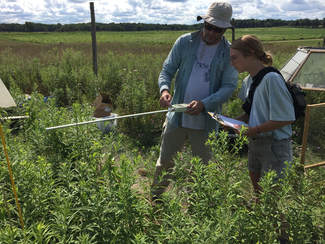
2017-present: Mark Hammond (Kellogg Biological Station)
Mark collaborates with Phoebe Zarnetske on the warmXtrophic experiment at Kellogg Biological Station and University of Michigan Biological Station and the Rainfall Manipulation Experiment at KBS LTER. Mark is vital for his depth of knowledge of KBS old field communities and KBS terrestrial experimental work, data collection, and on-site maintenance.
Mark collaborates with Phoebe Zarnetske on the warmXtrophic experiment at Kellogg Biological Station and University of Michigan Biological Station and the Rainfall Manipulation Experiment at KBS LTER. Mark is vital for his depth of knowledge of KBS old field communities and KBS terrestrial experimental work, data collection, and on-site maintenance.
|
2022-present: Emily Parker (Kellogg Biological Station)
Emily collaborates with multiple projects in the SpaCE Lab. During the spring & summer field seasons, Emily focuses on the warmXtrophic and REX climate change experiments at Kellogg Biological Station. Emily also conducts research with the Avian MetaNetwork project, overseeing the GitHub and R data workflow and species interaction database for birds across North America. Prior to joining the lab as a Research Technician, Emily was a URA and College of Natural Science Scholar in the lab. We're so lucky to have Emily continue with us! |
Undergraduate Students
India Hirschowitz (MSU '24)
Major: Zoology
Avian MetaNetwork Project; MSU Honors College Professorial Assistant 2022-
Major: Zoology
Avian MetaNetwork Project; MSU Honors College Professorial Assistant 2022-
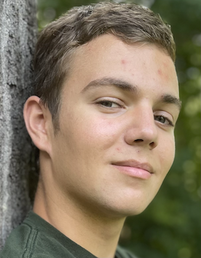
Giovanni DePasquale (MSU '27)
Major: Zoology
Avian MetaNetwork Project; MSU Honors College Professorial Assistant 2023-
Research Interests: My research interests include examining the behavior of different species, their unique characteristics, and their interactions with each other.
Major: Zoology
Avian MetaNetwork Project; MSU Honors College Professorial Assistant 2023-
Research Interests: My research interests include examining the behavior of different species, their unique characteristics, and their interactions with each other.
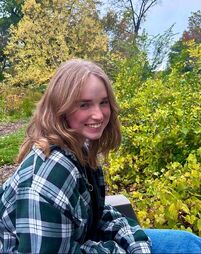
Caroline Roche (MSU '27)
Major: Environmental Biology/Zoology
Avian MetaNetwork Project; MSU Honors College Professorial Assistant 2023-
Research Interests: I am interested in studying animal behavior and how animals are affected by climate change.
Major: Environmental Biology/Zoology
Avian MetaNetwork Project; MSU Honors College Professorial Assistant 2023-
Research Interests: I am interested in studying animal behavior and how animals are affected by climate change.
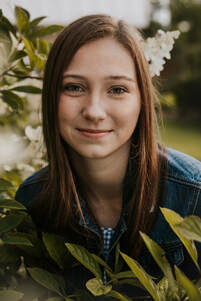
Adrian Noecker (Michigan Tech)
Major: Biochemistry & Molecular Biology, minor: Microbiology '25
NSF KBS REU '23
Research Interests:
My summer REU research focus is on plant and soil microbe interactions and the effects of drought and warming on this relationship, and how this may change plant characteristics and soil microbial communities. In the future I am interested in continuing to work with microbial communities and plan to pursue a career in academia.
Major: Biochemistry & Molecular Biology, minor: Microbiology '25
NSF KBS REU '23
Research Interests:
My summer REU research focus is on plant and soil microbe interactions and the effects of drought and warming on this relationship, and how this may change plant characteristics and soil microbial communities. In the future I am interested in continuing to work with microbial communities and plan to pursue a career in academia.
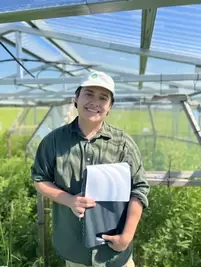
Jordan Zapata (MSU '24)
Major: Environmental Biology/Plant Biology
MSU KBS URA '22; warmXtrophic & Avian Metanetwork Project 2022-
Major: Environmental Biology/Plant Biology
MSU KBS URA '22; warmXtrophic & Avian Metanetwork Project 2022-

Emerson Wesselhoff (Kalamazoo College '25)
Major: Biology with concentrations in environmental science and public policy/urban affairs; minor in English
warmXtrophic & REX Projects 2022-
Major: Biology with concentrations in environmental science and public policy/urban affairs; minor in English
warmXtrophic & REX Projects 2022-
